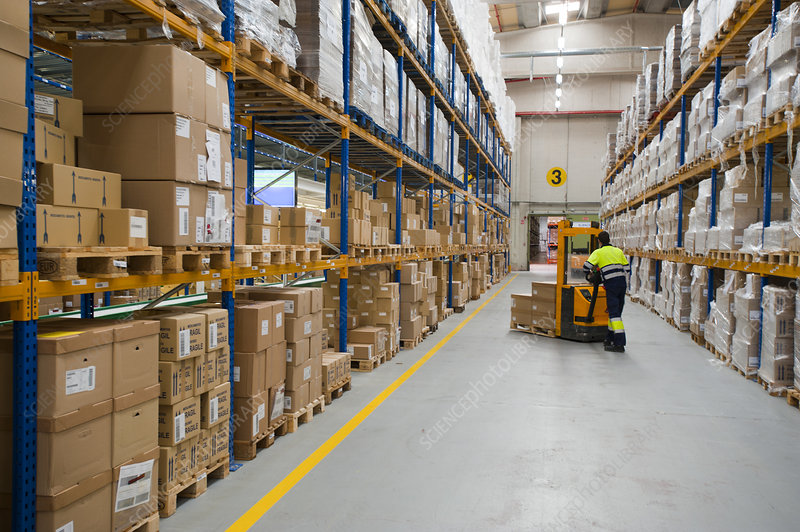In the intricate tapestry of the healthcare industry, one crucial thread that binds the entire system together is healthcare logistics. The efficient movement of pharmaceuticals and medical supplies is paramount for ensuring timely and effective patient care. In this article, we will explore the nuances of healthcare logistics, focusing particularly on pharmaceutical logistics and the indispensable role played by healthcare logistics companies.
Understanding Healthcare Logistics:
Healthcare logistics involves the management, storage, and transportation of medical goods, ranging from pharmaceuticals and medical devices to diagnostic equipment. The supply chain in healthcare is a complex network that connects manufacturers, distributors, healthcare providers, and ultimately, the end-users—patients. Timely delivery of medications and medical supplies is critical to maintaining the health and well-being of individuals worldwide.
The Critical Role of Pharmaceutical Logistics:
Pharmaceutical logistics, a subset of healthcare logistics, is tasked with the intricate process of handling and transporting pharmaceutical products. The pharmaceutical supply chain is highly regulated and demands precision to ensure product integrity and compliance with stringent safety standards. From the manufacturing facility to distribution centers and, ultimately, to pharmacies and healthcare providers, each step in the pharmaceutical logistics chain requires meticulous planning and execution.
Challenges in Pharmaceutical Logistics:
1. Temperature Sensitivity:
One of the primary challenges in pharmaceutical logistics is the need for temperature-controlled transportation. Many medications and vaccines are sensitive to temperature fluctuations, and any deviation from the recommended conditions can compromise their efficacy. Healthcare logistics companies must invest in specialized infrastructure and technology to maintain the required temperature throughout the entire supply chain.
2. Regulatory Compliance:
The pharmaceutical industry is heavily regulated, with stringent guidelines imposed by health authorities worldwide. Navigating this regulatory landscape is a constant challenge for healthcare logistics companies, requiring them to stay abreast of evolving regulations and compliance standards. Non-compliance not only poses legal risks but can also lead to the deterioration of the quality and safety of pharmaceutical products.
3. Security and Safety:
Pharmaceutical products are valuable and, unfortunately, susceptible to theft and tampering. Ensuring the security and safety of these products during transportation is a critical aspect of pharmaceutical logistics. Companies need robust security measures, including real-time tracking and monitoring systems, to safeguard the integrity of the supply chain.
Technology’s Role in Overcoming Challenges:
The advancement of technology has played a pivotal role in addressing the challenges faced by healthcare logistics companies, especially in pharmaceutical logistics.
1. Blockchain for Transparency:
Blockchain technology is increasingly being adopted to enhance transparency and traceability in pharmaceutical logistics. By recording every transaction and movement on an immutable ledger, blockchain ensures that the entire supply chain is visible and verifiable. This not only mitigates the risk of counterfeit drugs but also facilitates rapid identification and resolution of any issues that may arise.
2. IoT and Real-Time Monitoring:
The Internet of Things (IoT) has enabled real-time monitoring of shipments, providing healthcare logistics companies with immediate insights into the conditions of pharmaceutical products during transit. Temperature, humidity, and other critical parameters can be monitored remotely, allowing for proactive measures to be taken in case of deviations from optimal conditions.
3. Predictive Analytics for Demand Forecasting:
Predictive analytics is revolutionizing the way pharmaceutical logistics companies manage inventory and plan shipments. By analyzing historical data, market trends, and other variables, predictive analytics helps in accurate demand forecasting. This ensures that the right quantity of pharmaceutical products is produced and distributed, minimizing the risk of stockouts or overstock situations.
The Evolving Landscape of Healthcare Logistics Companies:
As the demands and complexities of healthcare logistics continue to grow, specialized companies dedicated to this field have become integral to the smooth functioning of the healthcare supply chain.
1. End-to-End Solutions:
Healthcare logistics companies now offer end-to-end solutions, encompassing everything from warehousing and transportation to regulatory compliance and risk management. This comprehensive approach allows pharmaceutical manufacturers and healthcare providers to focus on their core competencies while entrusting the complexities of logistics to specialized experts.
2. Global Reach:
The globalization of the pharmaceutical industry necessitates logistics companies to have a global reach. These companies leverage extensive networks and strategic partnerships to ensure seamless transportation of pharmaceuticals across borders. Navigating international regulations and customs procedures requires a deep understanding of the global healthcare landscape.
3. Customized Solutions:
Every pharmaceutical product is unique, and its logistics requirements vary. Healthcare logistics companies now offer customized solutions tailored to the specific needs of each product. Whether it’s temperature-sensitive vaccines or high-value specialty medications, logistics solutions are designed to ensure the integrity and safety of the products throughout the supply chain.
Conclusion:
In the ever-evolving realm of healthcare logistics, pharmaceutical logistics stands out as a critical component that demands precision, compliance, and innovation. The role of healthcare Logistics Companie has become increasingly indispensable, as they navigate the challenges of a highly regulated and dynamic industry. The integration of technology, coupled with the evolution of logistics services, ensures that pharmaceutical products reach their destination safely and efficiently, ultimately contributing to the well-being of patients worldwide. As we move forward, the collaboration between pharmaceutical manufacturers and healthcare logistics companies will continue to shape the future of healthcare supply chains, driving improvements in patient outcomes and overall healthcare delivery.




